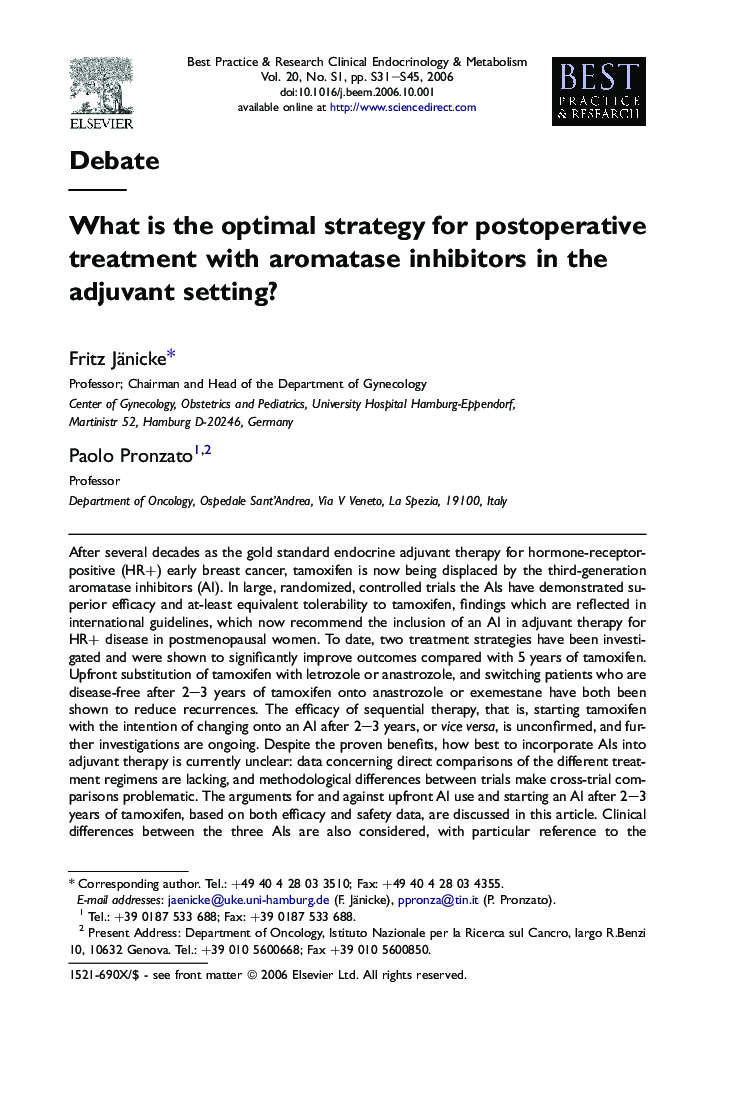| Article ID | Journal | Published Year | Pages | File Type |
|---|---|---|---|---|
| 2792127 | Best Practice & Research Clinical Endocrinology & Metabolism | 2006 | 15 Pages |
Abstract
After several decades as the gold standard endocrine adjuvant therapy for hormone-receptor-positive (HR+) early breast cancer, tamoxifen is now being displaced by the third-generation aromatase inhibitors (AI). In large, randomized, controlled trials the AIs have demonstrated superior efficacy and at-least equivalent tolerability to tamoxifen, findings which are reflected in international guidelines, which now recommend the inclusion of an AI in adjuvant therapy for HR+ disease in postmenopausal women. To date, two treatment strategies have been investigated and were shown to significantly improve outcomes compared with 5 years of tamoxifen. Upfront substitution of tamoxifen with letrozole or anastrozole, and switching patients who are disease-free after 2-3 years of tamoxifen onto anastrozole or exemestane have both been shown to reduce recurrences. The efficacy of sequential therapy, that is, starting tamoxifen with the intention of changing onto an AI after 2-3 years, or vice versa, is unconfirmed, and further investigations are ongoing. Despite the proven benefits, how best to incorporate AIs into adjuvant therapy is currently unclear: data concerning direct comparisons of the different treatment regimens are lacking, and methodological differences between trials make cross-trial comparisons problematic. The arguments for and against upfront AI use and starting an AI after 2-3 years of tamoxifen, based on both efficacy and safety data, are discussed in this article. Clinical differences between the three AIs are also considered, with particular reference to the prevention of distant metastases, which are still incurable. Although randomized, controlled trials comparing the different AIs and treatment strategies are required to elucidate the optimum treatment strategy for adjuvant endocrine therapy, it is important to note that, in oncology, the best outcomes are always achieved when the most effective agent is used first; in the case of HR+ early breast cancer, recent findings indicate that this is clearly an AI.
Related Topics
Life Sciences
Biochemistry, Genetics and Molecular Biology
Endocrinology
Authors
Fritz (Professor; Chairman and Head of the Department of Gynecology), Paolo (Professor),
